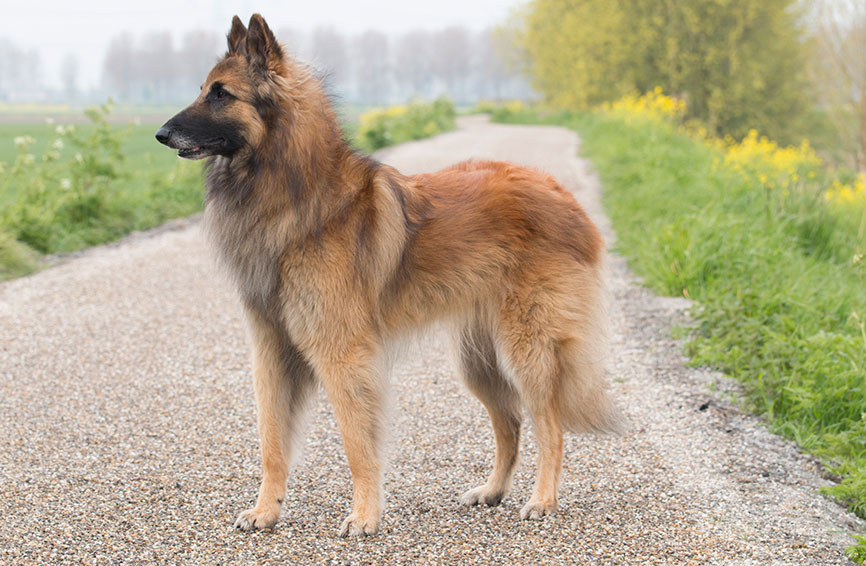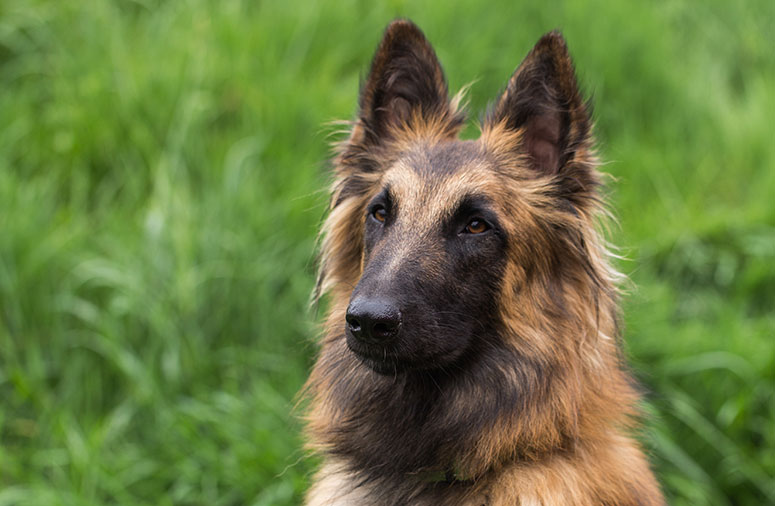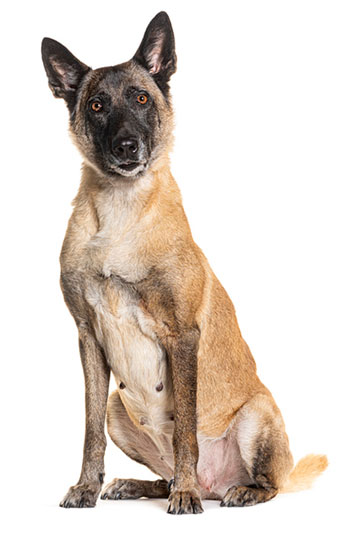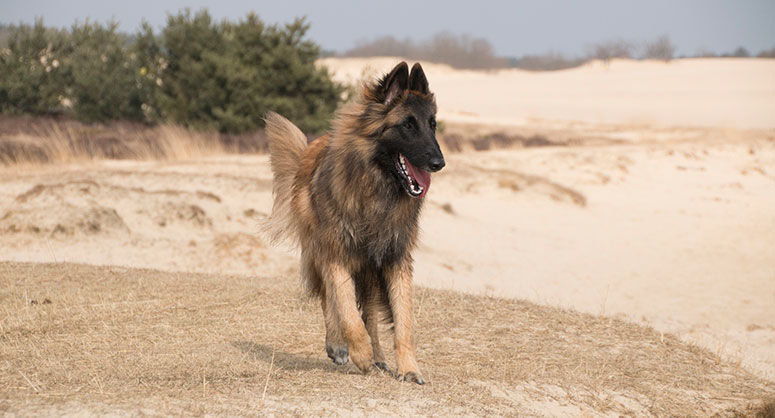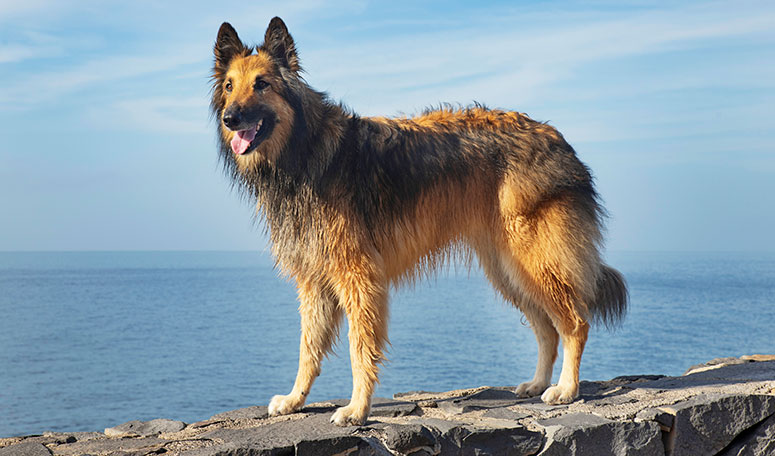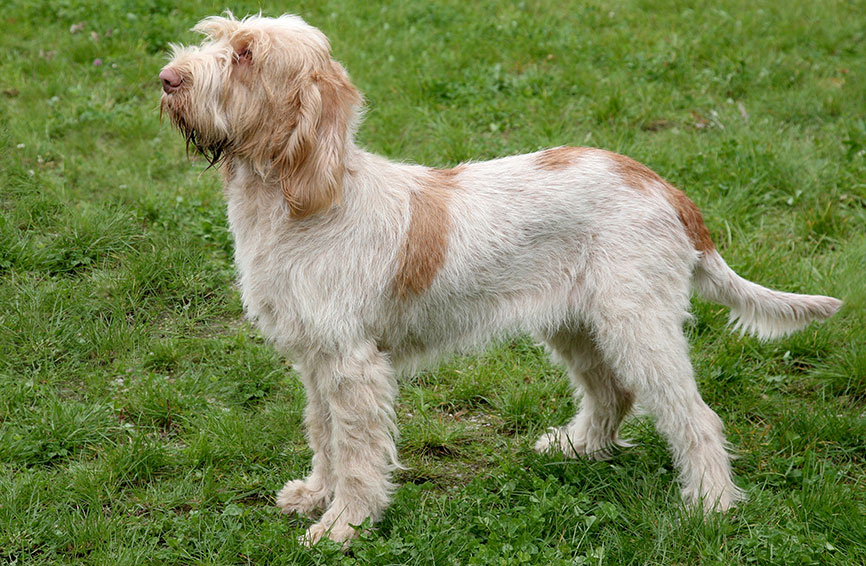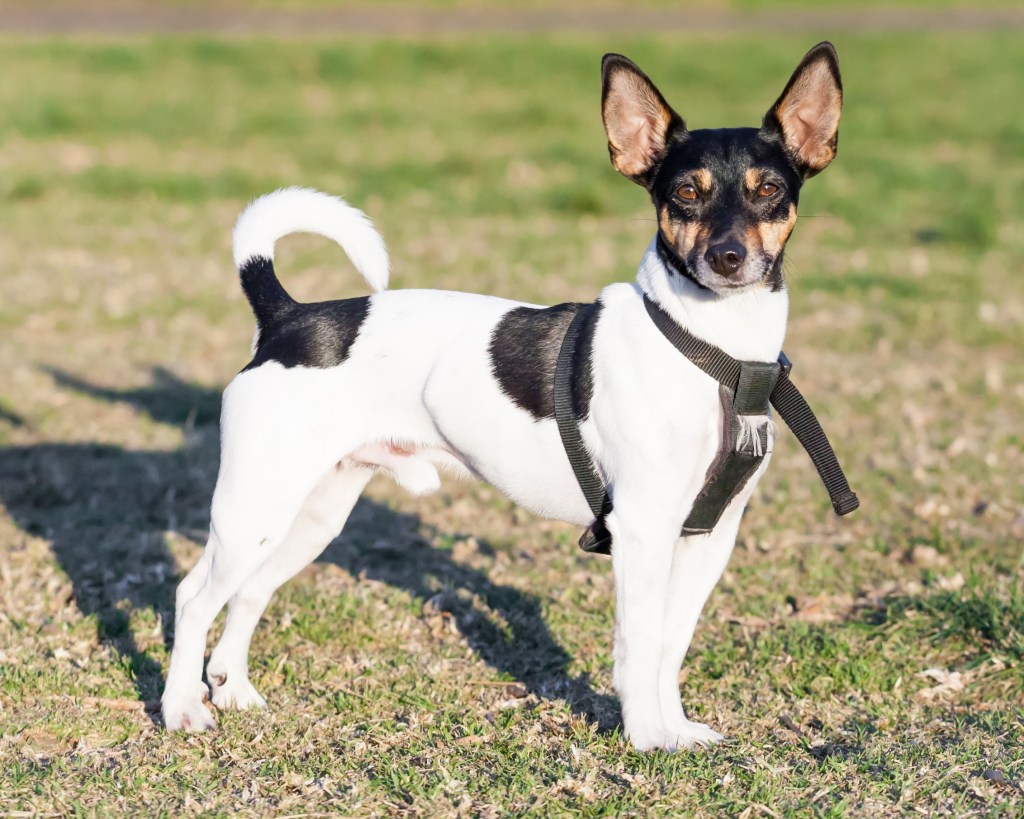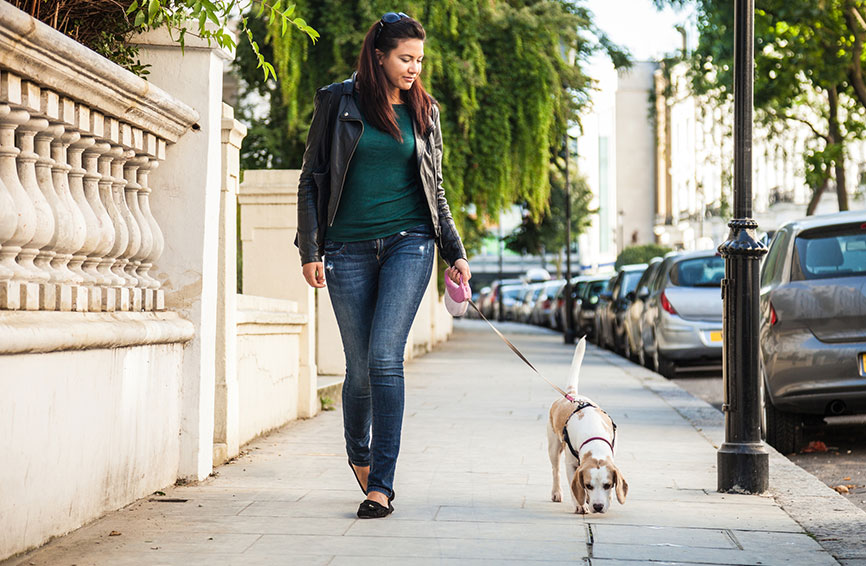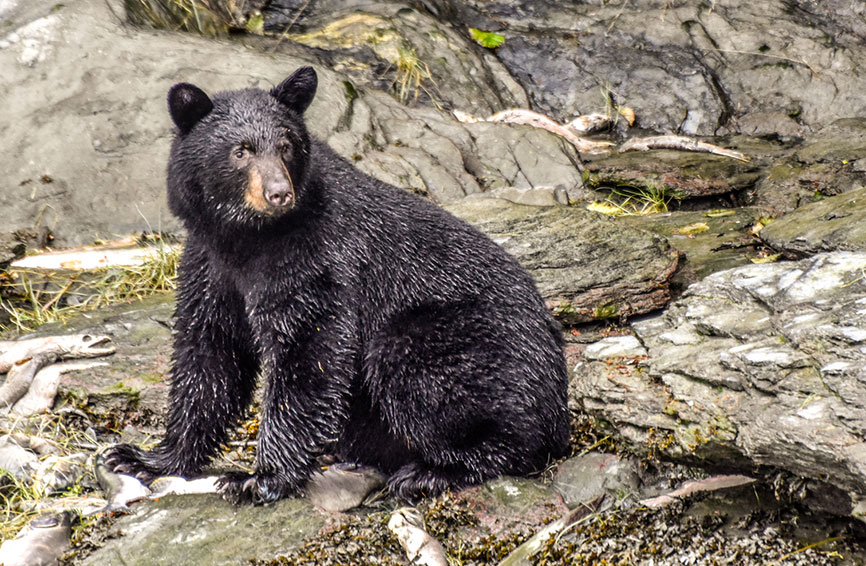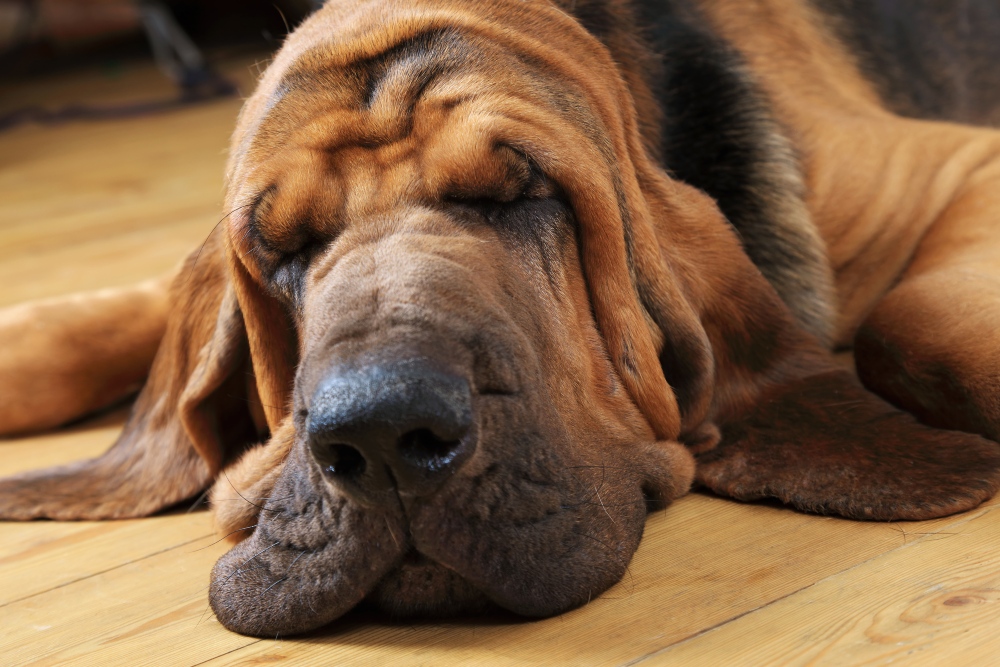Table of Contents
Introduction to Belgian Tervurens
Belgian Tervurens are self-assured, smart, agile, and elegant dogs known to be affectionate and possessive. They are hardworking dogs with a muscular frame and a strong work ethic. These sensitive dogs need plenty of exercise and mental stimulation to stay happy and healthy. So, learning everything you can about Belgian Tervurens before purchasing or adopting one to join your family is important.
Here is the essential information to know about Belgian Tervurens, including the breed’s temperament, physical characteristics, care, and health.
Size of Belgian Tervurens
When fully grown, male Belgian Tervurens weigh 55 to 75 pounds and stand 24 to 26 inches tall. Adult females weigh 45 to 60 pounds and are 22 to 24 inches tall. The dogs are mostly done growing by one year of age but may continue to gain a few more pounds until their second birthdays.
Here’s how big you can expect your Belgian Tervuren to get as the dog grows from puppyhood to adulthood:
| Weight Chart | 3 months | 6 months | 9 months | 12 months | 24 months |
| Male Belgian Tervurens | 40 – 45 lbs. | 55 – 60 lbs. | 70 – 75 lbs. | 70 – 75 lbs. | 75 – 80 lbs. |
| Female Belgian Tervurens | 35 – 40 lbs. | 50 – 55 lbs. | 60 – 65 lbs. | 60 – 65 lbs. | 65 – 70 lbs. |
Characteristics of Belgian Tervurens
Common characteristics of Belgian Tervurens are active, loyal, stubborn, and athletic. This versatile breed loves doing many different things with family members. You’ll find that Belgian Tervurens are eager to please and need plenty of space to run around. They’ll likely bark and alert their pet parents if anything suspicious happens. They must be brushed regularly to prevent fur mats.
As you get to know a Belgian Tervuren’s personality, here’s what you can expect based on the breed characteristics:
| Breed Characteristic | Level (High, Medium, Low) |
| Affectionate with People | Medium |
| Good with Kids | Medium |
| Good with Pets | Medium |
| Need for Exercise | Medium |
| Energy Level | High |
| Intelligence Level | High |
| Able to Be Trained | High |
| Amount of Barking | Medium |
| Amount of Shedding | Medium |
History of Belgian Tervurens
The Belgian Tervuren is one of four similar Belgian herding breeds. The other three are the Belgian sheepdog, Malinois, and Laekenois, and they are primarily distinguishable by their coat type.
Chien de Berger Belge is the Belgian Tervuren’s homeland, where the dogs were initially used for herding and guarding. Their name comes from the Belgian village of Tervuren, where master breeder M.F. Corbeel lived. Corbeel mixed black and fawn-colored dogs to create the modern Belgian Tervuren.
The breed was very effective in protecting farms and families who lived on them in Belgium. After the industrial age and the rise of mechanized farming, the dogs began being used for military and police work. Today, they also serve as search and rescue dogs, service dogs for disabled people, dog show champions, and movie actors. The American Kennel Club recognized the dog breed in 1959.
Belgian Tervuren Standard Information
The official standard for the Belgian Tervuren describes the breed as well-balanced, elegant, and full of life with distinct masculine and feminine characteristics. This is a natural dog that does not require extensive show-ring posing in competitions.
Here is an overview of the breed standard information for Belgian Tervurens:
Head:
- Well-chiseled with taut skin
- Dark brown eyes of medium size
- Triangular ears that are erect and well-cupped
- Teeth meet in a scissors or level bite
Neck, Topline, Body:
- Muscular and round neck
- Croup medium long and sloping gradually to tail base
- Chest is not broad but deep
- Tail is strong at the base
Forequarters:
- Shoulders are long and laid back 45 degrees
- Forearms and long and well-muscled
- Pasterns are strong and short
- Dewclaws may be removed
- Feet are round and cat-like
- Toes are well-padded with strong nails
Hindquarters:
- Legs are powerful without heaviness
- Thighs are broad and heavily muscled
- Hocks are moderately bent
- Dewclaws are removed
- Feet are heavily padded with strong nails
Coat:
- Adaptable coat for extreme temperatures
- Medium harshness texture
- Dense undercoat
- Short hair on the head, outside of ears, and front of legs
- Collarette around the neck, mostly on males
Color:
- Rich fawn to russet mahogany with black overlay
- Double pigmented with tips of fawn hairs blackened
- Chest is black or black and gray
- Tips of toes may be white
- Tail has a darker or black tip
Gait:
- Lively and graceful movement covering maximum ground with minimal effort
- Single tracks at a fast gait
- Backline remains firm and level
- Moves in a circle rather than a straight line
Caring for Belgian Tervurens
Belgian Tervurens are energetic and territorial, making them natural protectors. They are highly trainable and quick to learn. Don’t leave your Belgian Tervuren alone for long periods because these dogs are prone to separation anxiety. They love to chase, but this behavior should be monitored closely to keep your dog and other animals safe.
Here are some general tips for taking the best care of a Belgian Tervuren:
Best Living Environments:
- Homes with fenced yards
- Not ideal for apartment life
- Okay with kids and other pets if socialized early
- Best as companions for adults
Type of Exercise:
- At least an hour of exercise daily
- Hiking with family members
- Jogging with people
- Sledding
Mental Enrichment:
- Therapy and assistance work
- Dog sports
- Playing fetch
- Agility and obedience training
- Keep mentally occupied to prevent boredom and separation anxiety
Training Strategies:
- Train early to control the strong chase instinct
- Sensitive temperament, so no harsh corrections
- Use firm and consistent rules for corrections instead
Grooming Tips:
- Regular brushing, especially during shedding season
- Brush active dogs daily
- Brush less-active dogs weekly
- Bathe when dirty
- Brush teeth daily
- Check ears regularly for wax and odor
Common Health Problems of Belgian Tervurens
Belgian Tervurens have an average life span of 12 to 14 years. They are generally healthy dogs but are also prone to certain health conditions because of their breeding and genetics. Fortunately, Healthy Paws pet insurance covers breed-specific and genetic conditions, as well as accidents, injuries, cancer, and emergency care. The national breed club for Belgian Tervurens recommends that these dogs undergo hip, elbow, thyroid, and ophthalmologist evaluations.
These are some of the most common health issues that arise with Belgian Tervurens:
- Hip dysplasia
- Elbow dysplasia
- Progressive retinal atrophy
- Epilepsy
- Bloat
- Dental disease
- Hypothyroidism
Diet and Nutrition for Belgian Tervurens
An adult Belgian Tervuren needs two to three cups of high-quality dog food daily, divided into two meals. This amount may vary slightly if your dog is more or less active or entering the senior years.
The daily cost of feeding your Belgian Tervuren is about $1.20 to $1.40, and the monthly cost is $34 to $45. To prevent overfeeding and obesity, limit treats to no more than 10 percent of your dog’s daily calorie intake.
Where to Adopt or Purchase Belgian Tervurens
The American Belgian Tervuren Club is this breed’s official, nationally recognized American Kennel Club parent club. It is a resource for breed information, area club events, and a pedigree registry.
Belgian Tervuren Rescue is a nonprofit organization dedicated to finding loving homes for dogs that are available for adoption. Before placing dogs in new homes, the organization provides temporary foster care, basic health care, training, and temperament evaluation to ensure a good match for both the dog and the family.
Related Breeds
In addition to the Belgian Tervuren, there are other dogs with similar characteristics and temperaments of a comparable size. You might also consider these dog breeds before making the important decision to purchase or adopt a new pet:
- Beauceron
- Belgian Laekenois
- Belgian Malinois
Pet Insurance for Belgian Tervurens
Are you feeling confident and ready to bring a Belgian Tervuren into your life?
One of the best things you can do to take care of your new pet’s health is to sign your pup up for Healthy Paws pet insurance. Our dog insurance plan has no maximum limits on claim payouts and no per-incident, annual, or lifetime caps. You can use any licensed vet you trust and submit vet bills through our mobile app for quick processing.
Please provide us with just a few details about your pet so we can get your Belgian Tervuren insurance quote today. We are here for you and your dog when accidents and illnesses happen and to give you peace of mind that you can always prioritize the veterinary care your dog needs without worrying about finances.
